Fighting The Good Fight
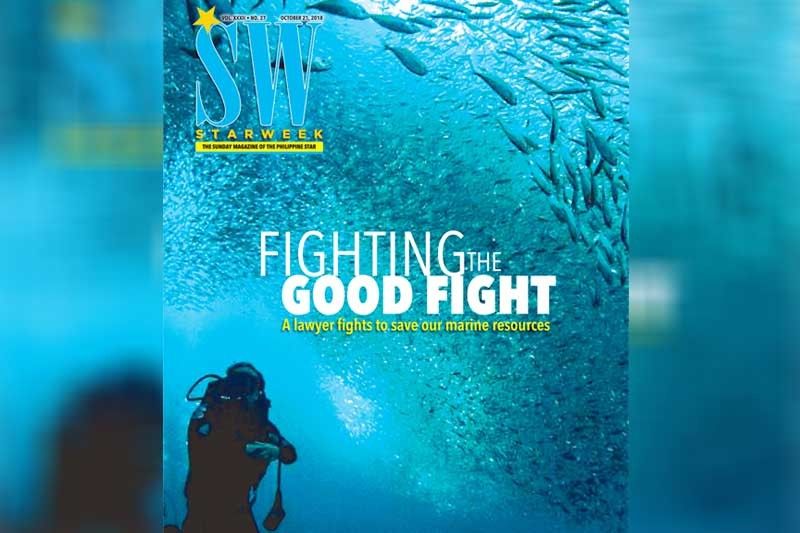
MANILA, Philippines — For Gloria “Golly” Estenzo-Ramos, it was environmental law that made her practice more meaningful. As Oceana Philippines vice president and co-founder of the Philippine Earth Justice Center, Ramos is constantly on the frontlines of marine preservation.
“I had a client who was a women’s rights advocate and she really paved the way for my entry into civil society and the NGO world,” says Ramos, who was a long-time corporate lawyer – a big leap from the NGO work she does now.
She shares it was her fellow Cebuano Tony Oposa who really brought her into the environmental advocacy. “He needed someone who would work in the Visayas area when the Integrated Bar of the Philippines set up the National Environmental Action Team. Tony was the head and he asked me to be the deputy for the Visayas.”
Ramos says, “I found my passion.” Thus, she became one of a handful – only some 150 – environmental lawyers in the country.
Ramos went on spread her passion by teaching environmental law. “Our laws are good! Really, we’re world-class, very progressive legal system,” she says. However, what the country, especially local government units, lack is proper implementation.
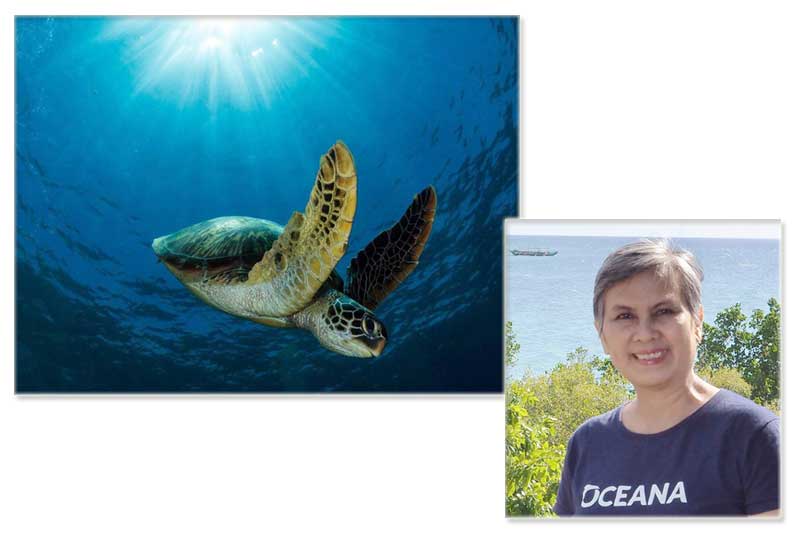
A green sea turtle swims safely in Tañon Strait, a protected seascape in the Visayas (left). Oceana Philippines vice president Gloria “Golly” Estenzo-Ramos (below). On the cover: One of Oceana’s current projects is an urgent call to adapt the Management Framework Plan for Sardines in the Philippines – lest our sardine resources run out. Danny Ocampo
In her environmental law classes, part of her students’ requirements was to monitor compliance of the solid waste management law. “It added more meaning to the law,” she says. “They were not just reading about it, but being exposed.”
Because of the data compiled by her students, they were able to send a notice to sue to four cities in Cebu. Another class made a presentation to the mayor on proper solid waste management law implementation.
“It was planting a seed of concern beyond yourself,” says Ramos on her teaching method. “Now we see the fruits. Volunteer lawyers are our students. Some are running for local elected posts. You can already see this is going to be a different generation.”
Aside from nurturing the next generation of environmental lawyers, one of Ramos’ major achievements was winning a landmark supreme court case: Resident marine mammals of Tañon Strait vs. Secretary Angelo Reyes.
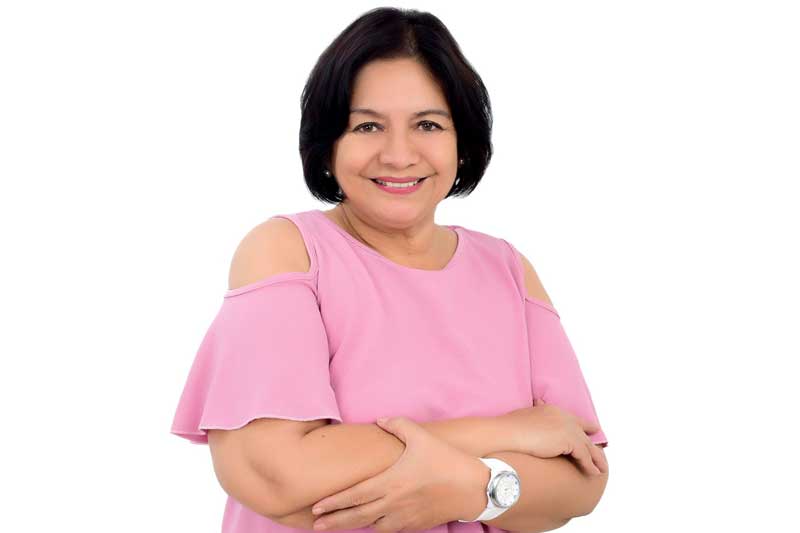
Nelia De Los Reyes Sancho
“In 2007, government under then president Arroyo together with the governor of Cebu and two mayors agreed to have an offshore drilling for oil in the area. That is a protected seascape,” she says.
The fisherfolk of the area were immediately affected and displaced.
“Under our Constitution they have preferential access to their fishing grounds which were their municipal waters,” says Ramos. “They couldn’t send their children to school because they really were not allowed to fish in the area.”
Ramos, together with her fellow petitioners, mobilized the community. Because of their campaign, young Cebuanos were inspired to set up the Save Tañon Strait Citizen’s Movement, while Ramos and her team took legal action.
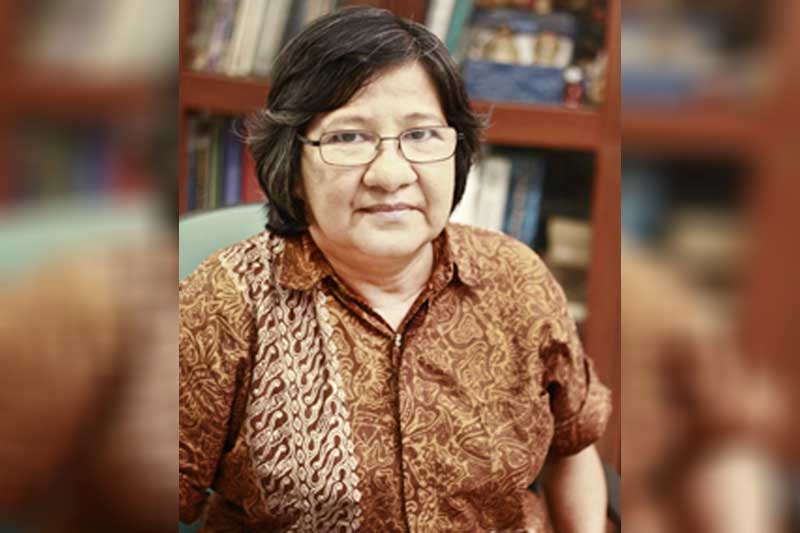
Flerida Arsciwals Cariño
“We filed two cases to be sure,” she recalls. It was Ramos’ husband Dante who represented the displaced fisherfolk, a case that was sure to win. It fell to Ramos to take on a more difficult case – one that her colleagues were expecting the court to dismiss. “Using whales and dolphins as petitioners, that was novel!” she says.
“Six months after filing the case, the Japanese company involved withdrew from the area. That was already a victory,” she says. “But then the Department of Energy said ‘we will rebuild.’ So we said, ‘then we will not withdraw from the case’.” Eight years later, in 2015, Ramos won the case.
What really makes the fight worthwhile for the indefatigable lawyer are the fisherfolk. “They would tell me, ‘Before we thought the laws are meant for the rich.’ But because of what’s been happening, it applies to them as well... I want them to feel hopeful, that things can still change.”
Ramos’ work with Oceana helps empower the fisherfolk.
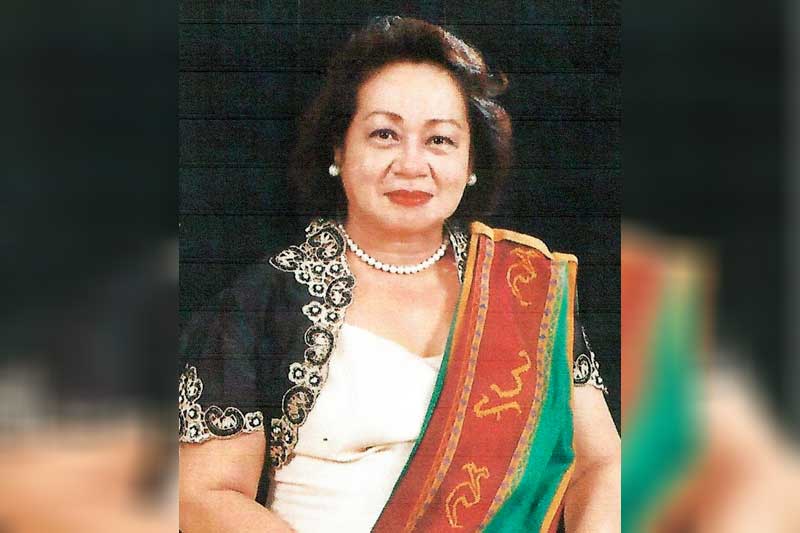
Maria Luz Raneses-Raval
“Oceana is the only international NGO focused on marine conservation. After all, the planet is a blue planet – 2/3 of our planet is water,” she says.
“We’re the only NGO helping the government implement the ban on commercial fishing in all municipal waters,” she adds, aside from involvement in other national policies, reforms and tourist management.
Because of Oceana Philippines’ work, President Duterte formally declared Benham Rise within the country’s exclusive economic zone.
Despite having to stand up to major corporations and sometimes even government officials as part and parcel of her environmental advocacy, Ramos remains undeterred. “As a lawyer, I know the legal framework is really good,” she says.
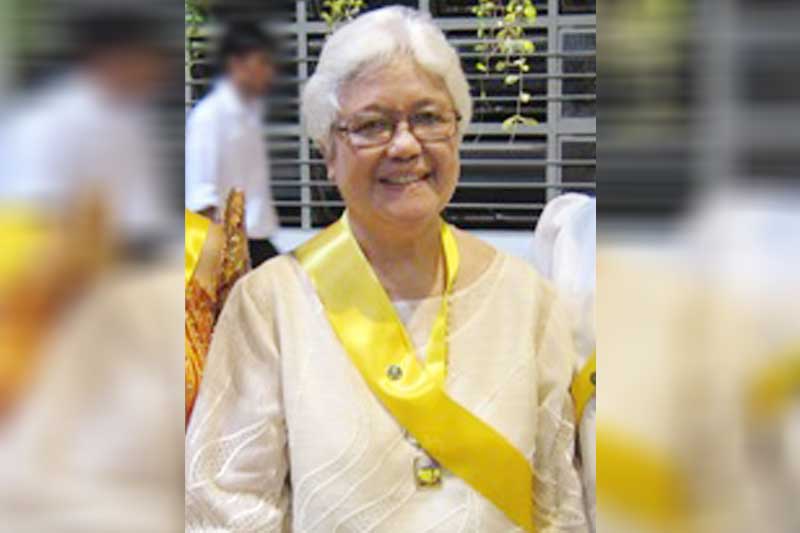
Erlinda Seminiano-Paterno
“I feel it is my duty as a lawyer, as a citizen, to ensure that the law is respected,” she adds.
She believes greatly in using the law as a tool to change behavior of key decision makers. “That gives me the courage to really push and push. It’s empowering, at the same time it’s a big responsibility.”
The feisty lawyer in her comes out as she adds, ”If you live in fear, wala kang magagawang desisyon (you won’t be able to make decisions).”
Ramos’ work is being recognized at the Sigma Delta Phi’s Mariang Maya Achievement Awards. She is joined by fellow awardees Erlinda Seminiano-Paterno, Marife Butalid-Zamora, Nelia De Los Reyes Sancho, Maria Luz Raneses-Raval and Flerida Arsciwals Cariño.

Marife Butalid-Zamora
Paterno is an acclaimed soil scientist and emeritus professor at UP Los Baños. Her pioneering scientific research on soil microorganisms has led to cheaper and more environment-friendly plant products.
Zamora is woman business leader whose sterling leadership and management of Convergys Philippines has shown corporate governance at its best. She is a former president of the Management Association of the Philippines, a member of the American Chamber of Commerce and founder of the Filipina CEO Circle.
Sancho, a former beauty queen, was co-founder of the GABRIELA Alliance of Women’s Organizations, Global Alliance Against Trafficking in Women and the Asian Women’s Human Rights Alliance. She also founded two associations of Filipina comfort women, Lila Flipina and Lolas Kampanyera.
Raval, another former beauty queen and model, now heads the UP Diliman Legal Office and is an active women’s and children’s rights advocate.
Cariño has done important work in biosafety technology. She was also the first director of the UP Institute of Environmental Science and Technology. She was recognized by the Department of Agriculture as one of the “Faces of Biotechnology” in 2016.
Ramos gives her Sigma Delta sisters a lot of credit for motivating her to be an achiever in her field. “The bar is set very high. You cannot let people down,” she says. “We also see our sisters – all achievers. It’s a big honor to be in the league of Winnie Monsod, Justice Leila Romero who was my professor and Ces Drilon,” she says, listing some of the past Mariang Maya awardees, among many others.
“It’s not just for ourselves. It’s for the community, the nation. I really feel it’s our duty,” Ramos adds.
She recalls a lesson she learned from former chief justice Reynato Puno: “It’s never an honor to be a mere storehouse of knowledge. You have to do your part.” This is what has constantly pushed Ramos to continue advocating for the protection of the ocean and the environment – even if sometimes it feels like swimming against the current.
“You have to make changes. Especially now... I really believe that we need the rule of law. That creates stability and predictability.”
Despite the challenges, Ramos says in Cebuano, “Padayon. Let’s continue the work.” Indeed, for Ramos and her fellow Mariang Maya awardees, fighting the good fight continues.
- Latest
- Trending



















